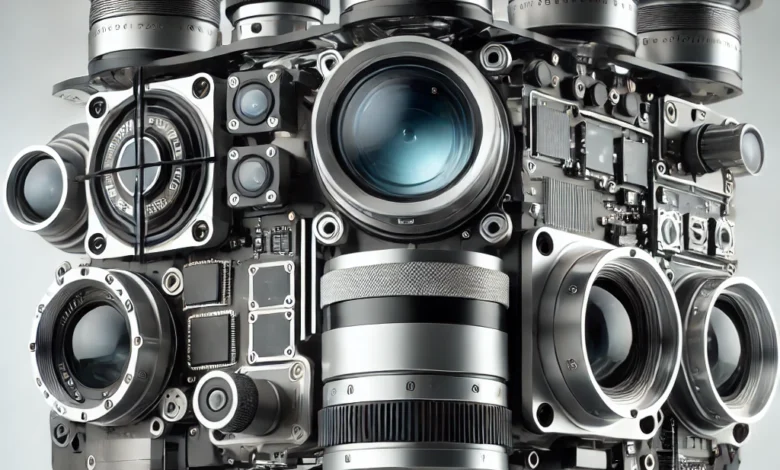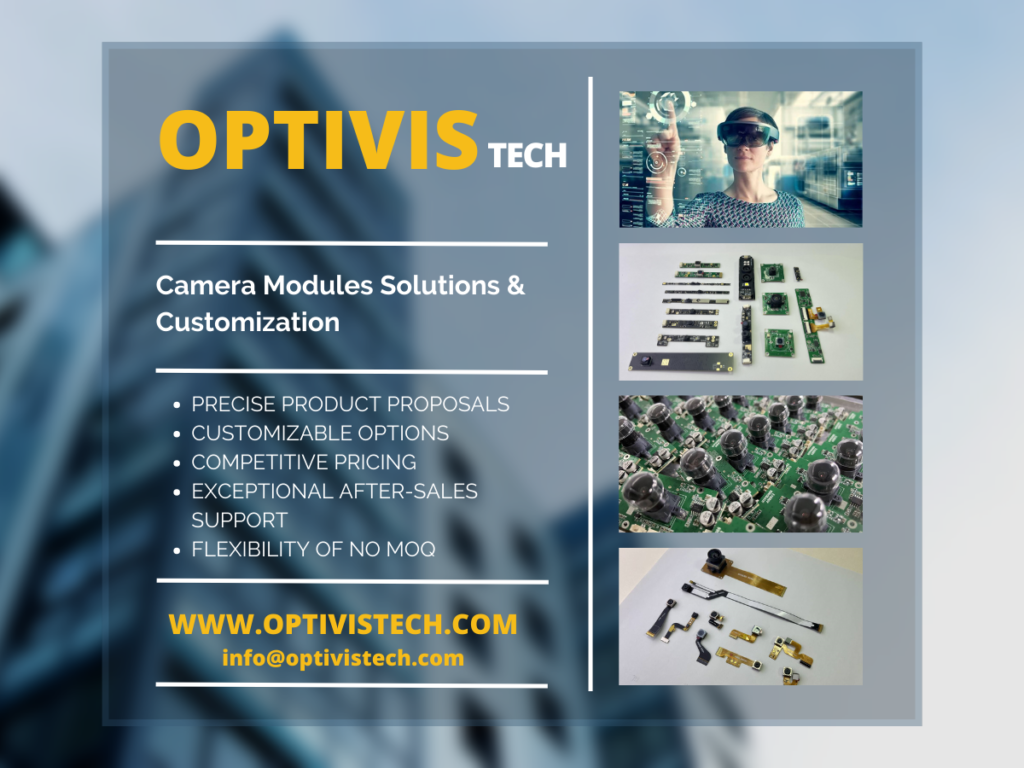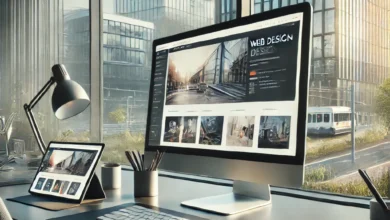Innovative Custom Camera Module Design for Unique Applications

Introduction
In the world of modern technology, cameras have become an essential tool across numerous devices and industries. Whether it’s your smartphone, the surveillance system in a smart city, or the advanced imaging system in an autonomous vehicle, camera modules are at the heart of many innovative applications. But as industries and consumer needs continue to evolve, the demand for more specialized solutions has given rise to custom camera module designs. These tailored camera modules are making it possible to push the boundaries of technology in ways we’ve only dreamed of before.
Custom camera module design plays a crucial role in meeting the specific needs of various industries. The ability to design a camera module with unique specifications, instead of relying on off-the-shelf solutions, allows companies and innovators to build highly efficient and optimized devices for their specific use cases. From improving image quality in harsh environments to adding extra functionalities for AI systems, custom camera modules open a new world of possibilities.
The Evolution of Camera Module Design
Camera modules have come a long way since their inception. Early models were bulky, lacked high resolution, and could only be integrated into limited types of devices. As technology advanced, camera modules became smaller, more powerful, and versatile enough to fit in everything from smartphones to drones. The growing need for enhanced functionality and performance has led to the development of custom designs that cater to unique applications.
The evolution of camera module design has also been driven by the need for customization. No longer is a one-size-fits-all approach effective, especially when industries like healthcare, automotive, and aerospace demand tailored solutions. These demands have fueled the growth of custom camera modules, enabling more precise and specialized designs for diverse tasks.
What Is a Custom Camera Module?
A custom camera module is a highly tailored imaging system that is designed to meet specific application needs. Unlike standard camera modules, which are manufactured in bulk with generic features, custom modules are designed with particular specifications, sensors, lenses, and functionalities to ensure optimal performance in a given environment. The flexibility of custom camera module design allows manufacturers to integrate features that may not be available in commercially available options.
Whether it’s adjusting the sensor size, customizing the lenses, or adding extra components for low-light performance, custom modules can significantly improve image quality and functionality for niche applications.

To buy custom camera module design, visit https://www.optivistech.com/
Advantages of Custom Camera Module Design
Custom camera modules offer a wide range of advantages over standard designs. One of the main benefits is flexibility. Companies can tailor camera modules to meet the exact requirements of their devices, ensuring they are optimized for specific tasks. This could mean better low-light performance, higher frame rates, or enhanced durability for harsh environments.
Another advantage is that these designs can enhance specific functionalities. For example, a drone might require a custom camera module with better stabilization and faster autofocus for precise aerial photography. In contrast, a medical device may need a camera capable of capturing fine details during surgery. Custom modules can address these diverse needs efficiently.
Cost-effectiveness is another key benefit. While custom designs may have higher initial development costs, they are often more efficient in the long run. Tailoring a camera module to a specific use case minimizes waste and ensures better integration, reducing the need for additional modifications down the line.
Key Components of Custom Camera Modules
When designing a custom camera module, several key components must be considered. The sensor is one of the most critical elements, as it determines the module’s resolution, light sensitivity, and dynamic range. Depending on the application, designers may choose to use a larger or smaller sensor, or opt for specialized sensors such as infrared or thermal imaging.
The lens is another vital component. A custom camera module might require a wide-angle lens for panoramic views or a macro lens for close-up shots. Custom lens designs can significantly impact the performance and versatility of a camera module, allowing it to adapt to different scenarios.
Processors and ISPs (Image Signal Processors) are equally important, as they help manage the data captured by the sensor and improve image quality through techniques like noise reduction, color correction, and dynamic range enhancement. Choosing the right processor is crucial for achieving the desired performance and efficiency in custom designs.
Industries Leveraging Custom Camera Module Design
The demand for custom camera modules is growing across numerous industries. Each sector has its unique requirements, and custom camera modules are playing a vital role in helping businesses meet these demands.
Custom Camera Modules in Consumer Electronics
In the consumer electronics sector, camera modules are ubiquitous. Smartphones, in particular, have been at the forefront of camera technology, with manufacturers constantly seeking ways to enhance their camera systems. Custom camera modules enable devices to offer features like multiple lenses, portrait mode, and advanced zoom capabilities that appeal to consumers.
Wearable technology, such as AR/VR headsets and smart glasses, also relies heavily on custom camera designs. These devices require compact, lightweight modules with high-resolution imaging to provide users with immersive experiences. As home automation and IoT grow, the demand for smart cameras that integrate seamlessly with home systems has also driven the development of custom solutions.
Custom Camera Modules for Autonomous Vehicles
The automotive industry is another major beneficiary of custom camera module design. Autonomous vehicles, in particular, rely on a network of cameras for navigation, safety, and obstacle detection. Custom camera modules are essential for providing the high-resolution, real-time imaging required for advanced driver-assistance systems (ADAS) and self-driving technologies.
These cameras must withstand extreme conditions such as high heat, rain, and dust, making durability and customization critical. Designing modules that can capture detailed images while maintaining performance under challenging environments is essential for the safe operation of autonomous vehicles.
Medical Applications for Custom Camera Modules
The healthcare industry is also seeing significant innovation thanks to custom camera module design. Medical imaging devices such as endoscopes and diagnostic cameras require precision and clarity to assist healthcare professionals in making accurate diagnoses. Custom camera modules enhance the detail and quality of medical images, helping to improve patient outcomes.
Custom designs also allow for the creation of specialized cameras that can capture images in hard-to-reach areas of the body, providing doctors with better tools for minimally invasive surgeries and other complex procedures.
Benefits of Custom Camera Modules for Unique Applications
One of the most compelling benefits of custom camera modules is their ability to meet specific industry demands. In niche industries such as aerospace, where precision and reliability are paramount, custom camera designs allow manufacturers to create modules that can withstand extreme conditions while delivering top-notch performance.
Additionally, custom camera modules improve operational efficiency by ensuring that the imaging systems are perfectly suited to the tasks they are designed for. This leads to better results, whether it’s sharper images, faster processing times, or improved integration with other technologies. By tailoring solutions to unique use cases, businesses can enhance their overall efficiency and productivity.
Design Considerations for Custom Camera Modules
When developing custom camera modules, several design factors need to be considered. Environmental conditions play a huge role in shaping the design. For example, cameras used in space exploration must be designed to function in zero-gravity, high-radiation environments. Similarly, cameras designed for underwater exploration need to be resistant to water pressure and corrosive elements.
Power consumption is another critical factor, especially in portable devices like drones or wearable tech. Custom designs must ensure that the camera modules are energy-efficient, so they don’t drain the device’s battery life too quickly. This often requires the use of specialized processors and low-power sensors.
Size constraints are also a common challenge in custom camera design. Devices like smartphones and AR headsets require ultra-compact camera modules that still offer high performance. Custom designs can optimize the size without compromising on image quality or functionality.
Customization for Specialized Environments
Certain industries require camera modules that can perform in extreme or specialized environments. For example, industrial cameras used in manufacturing must be dust-resistant and capable of functioning in high-temperature environments. In contrast, cameras used in space exploration must be designed to tolerate high levels of radiation and vacuum conditions.
Similarly, cameras used in underwater exploration must be pressure-resistant and built with materials that can withstand long-term exposure to water. These unique environmental challenges make custom camera module design essential for ensuring the long-term reliability and effectiveness of imaging systems.
How Custom Camera Modules Are Driving Innovation
The rise of custom camera modules is driving innovation across multiple fields. By allowing manufacturers to design systems that perfectly match their requirements, these modules are helping to push the boundaries of technology.
Artificial intelligence (AI) and machine learning are key areas where custom camera modules are playing a vital role. Cameras with AI capabilities can process and analyze images in real time, enabling everything from facial recognition to autonomous navigation. Custom designs allow for better integration of AI algorithms with imaging systems, opening up new possibilities for smart cameras and connected devices.
In the field of robotics, custom camera modules are enabling machines to “see” and interact with their environment more effectively. From robotic surgery to industrial automation, cameras are becoming an essential part of the robotic ecosystem. Custom designs ensure that these cameras can meet the specific needs of each robotic application, whether it’s precision, durability, or speed.
Challenges in Designing Custom Camera Modules
While custom camera modules offer numerous advantages, they also present some design challenges. Cost is often a major concern, as custom designs typically require higher upfront investment compared to off-the-shelf solutions. Balancing performance and cost can be tricky, especially for smaller companies or industries with tight budgets.
Another challenge is miniaturization. As devices become smaller and more portable, fitting powerful camera systems into compact spaces becomes more difficult. Custom designs need to find innovative solutions to maintain image quality and functionality in increasingly smaller packages.
Finally, ensuring compatibility with existing systems can be a hurdle. Custom modules must work seamlessly with other components, such as processors and displays, without causing integration issues or performance bottlenecks.
The Future of Custom Camera Module Design
Looking ahead, the future of custom camera module design is incredibly promising. With trends like AI-powered imaging, 5G connectivity, and IoT integration on the rise, the demand for more specialized and powerful camera systems will only increase.
Custom camera modules are expected to play a critical role in the development of smart cities, where cameras will monitor everything from traffic flow to public safety. In the healthcare sector, advancements in telemedicine and robotic surgery will drive the need for even more precise and reliable imaging systems.
The next decade will likely see custom camera modules become even more compact, powerful, and versatile, paving the way for exciting innovations across multiple industries.
Conclusion
Custom camera modules have transformed the way we think about imaging technology. By allowing businesses to design tailored solutions for their specific needs, custom modules are driving innovation across a wide range of industries. From autonomous vehicles to medical devices, these camera systems are helping to solve some of the most complex challenges of our time.
As we move towards a future where AI, IoT, and robotics dominate, the role of custom camera modules will only continue to grow. Whether you’re developing the next-generation smartphone or building an autonomous drone, custom camera modules offer the flexibility, efficiency, and innovation needed to succeed.

